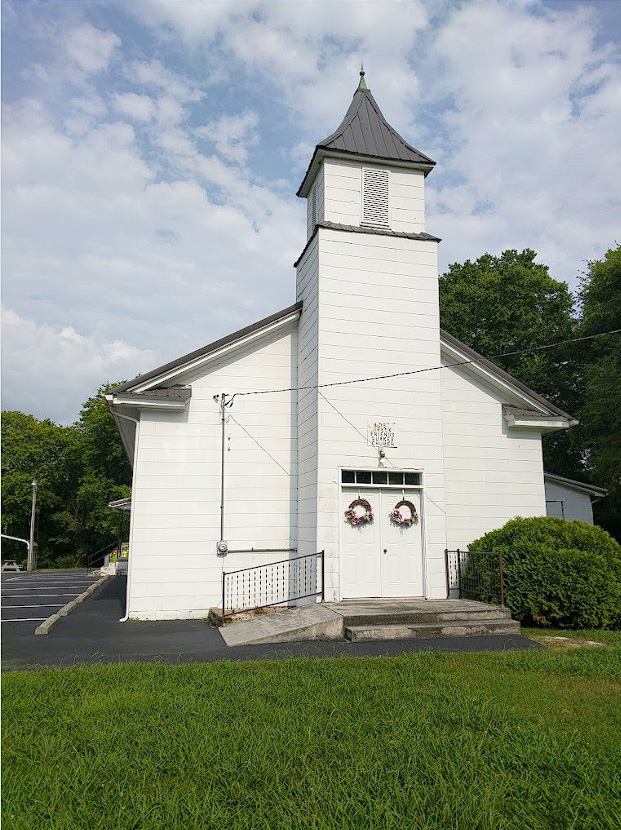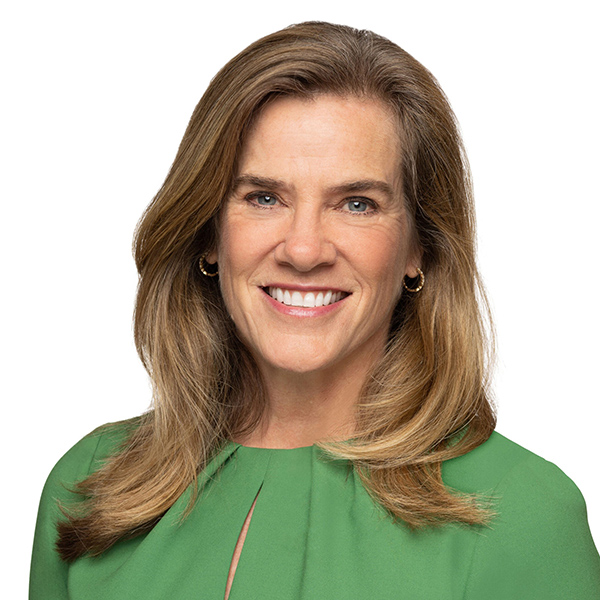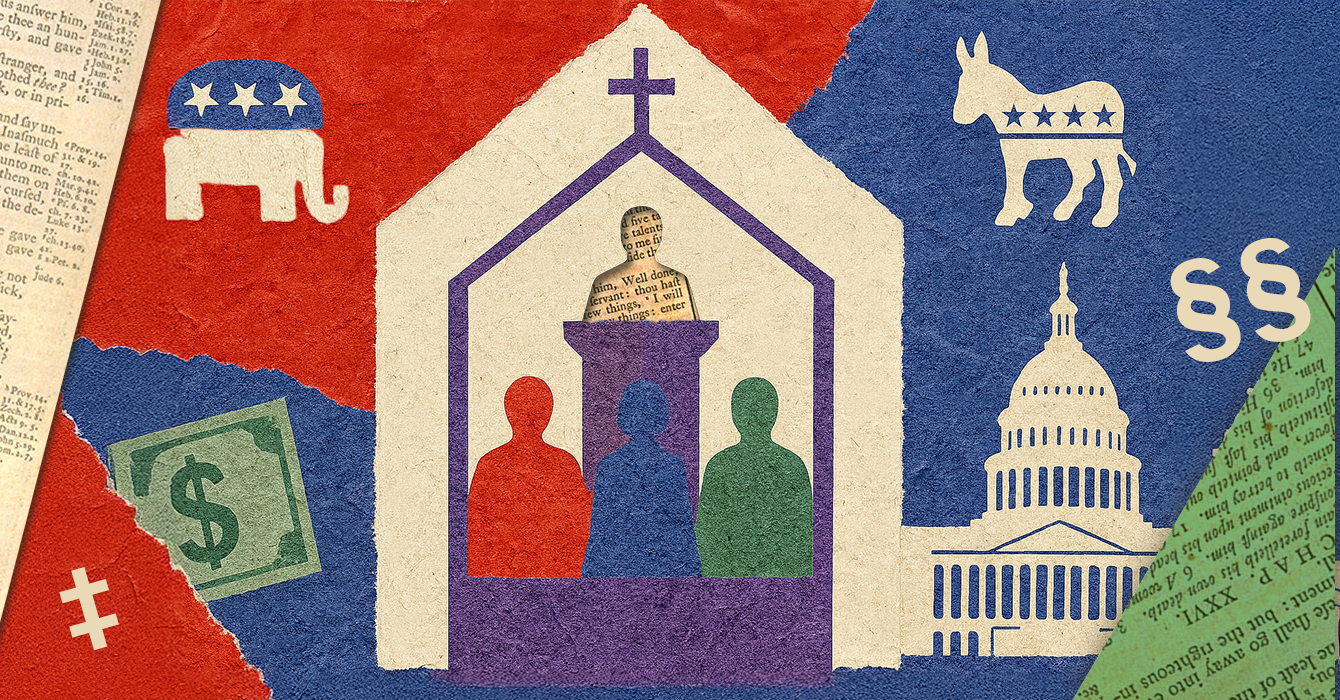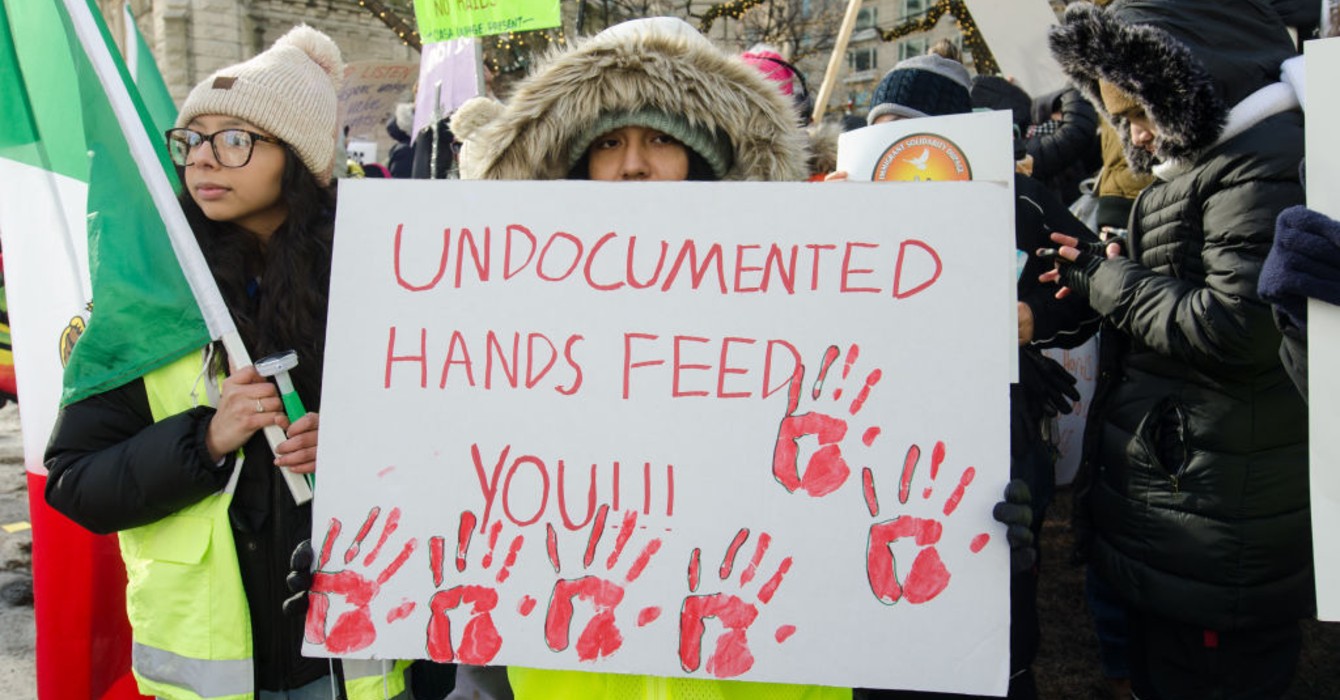In 1966, Thomas Merton wrote that our primary task as people of faith is to stay human. “Be human in this most inhuman of ages,” he advised. “Guard the image of man for it is the image of God.”
Staying human is hard and holy work; it’s even harder during a presidential election year. Lots of people are spending lots of money to activate our anxiety and anger.
Having worked on political campaigns, I know the tactics used by political parties to motivate and move people. As a pastor at a small rural church, I know that those tactics are sometimes at odds with the work of local ministry. Faith leaders have their work cut out for them.
The answer, I think, is not to ignore politics completely or feign some kind of fuzzy centrism. The call is not to preach a religious left, right or center but to stay centered. By “centered” I mean spiritually centered, as in calm, nonanxious and grounded. In my own Quaker tradition, we are often advised to “center down” into God’s presence. But I also mean theologically centered, as in focused on what’s central in our faith — like the gospel, the kingdom, the body of Christ.
During critical elections of international consequence, small churches may seem irrelevant. However, these local congregations have much to teach us about staying human in times like this.
The word “human” comes from the same root as “humble,” “humor” and “humus,” all of which share the sense of being “close to the ground.” Small churches are naturally “close to the ground” in that they are places where particular people connect with one another; they are rooted in a particular place, full of quirky humor, and steady with a prudent and patient view of the future.
I would like to offer six principles we can learn from small churches to survive election season. Whatever the size of your church, feel free to borrow a few of these small-church practices.
Stay locally rooted. Small neighborhood churches tend to be bonded more by geography than by ideology. Of course, folks have belief systems and denominational affiliations, but small-church folks are held together because they “live, move and have their being” in a particular place.
They are naturally invested in the places where they shop, work, play and educate their children. As the saying goes, there are no Democrat or Republican potholes. And the ideological sorting in small churches (especially country churches) is less common than in large ones, since there are often fewer options available for “church shopping.”
When complex and controversial national issues divide us, we can stay focused on “seeking the shalom” of our local places (Jeremiah 29), which requires collaboration across political differences.
Invest in relational capital. Jesus’ strategy for discipleship and social change was deep investment in a small group of particular people. There is no escaping the centrality of human relationships.
In a large church, if you get annoyed with your spiritual sibling, you can simply change your seat in the auditorium. In a small church, there is little choice but to keep facing that sibling, and those face-to-face encounters challenge us to keep doing the hard work of reconciliation and collaboration.
To stay human in this inhuman age, we can turn off the television and turn to one another. We can invest in the relational capital that will sustain both our sanity and our ministry.
Take advantage of informal dialogues. Small churches have liturgy and programming, but they tend to have more informal and flexible spaces in their gatherings. We can take advantage of those opportunities. We can talk about social issues in light of local realities and spiritual principles. The men’s gathering at the local diner or the monthly meeting of the benevolence committee can offer opportunities for meaningful conversation built on local roots and relational capital.
Make room for personalized prayers of the people. In my church, we set aside time each week for joys and concerns. It’s a Quaker version of the prayers of the people. This may be as serious as a family member’s diagnosis with cancer or as whimsical as a child’s joy about playing with the family dog.
It all matters to the community, and it all matters to God. Together we “rejoice with those who rejoice” and “mourn with those who mourn” (Romans 12:15). We are woven together as a community that transcends political divides. And we become what Carl S. Dudley, author of “Making the Small Church Effective,” has called a “caring cell.”
Keep tapping into our traditions. Coming from the lowest of low church traditions, Quakers don’t have holy days and don’t officially recognize the church calendar. But some of us do some sacred calendaring anyway. And many small churches have both local traditions and church traditions they hold dear.
It is important to keep these traditions, even when political seasons impose their own time lines and priorities. We can find a way to incorporate prayer and fellowship on voting day yet also remember that the fall is full of spiritual festivity: harvest days, Thanksgiving, All Saints’ Day, etc.
Find ways to play. In heavy and historic times, we need to keep our playdates! In the informal and relational contexts of small churches, we often have more liberty to be playful. In my church, we sing “Happy Birthday,” we tease each other, and we occasionally incorporate games into worship. We can let kids lead with this, as well. Remember, it’s the childlike who enter the kingdom (Matthew 18:3).
Making room to play together does not mean we can ignore the seriousness of national or international issues. It only means we are committed to staying human and holy, to keeping connected and grounded. I like to borrow the prayer of Jesuit Daniel Lord:
Let me have too deep a sense of humor ever to be proud.
Let me know my absurdity before I act absurdly.
Let me realize that when I am humble I am most human, most truthful, and most worthy of your serious consideration.
To be sure, we often fall short of our ideals and turn these human qualities into excuses for staying stuck and small. But as faith leaders, we can call forth the best from small congregations and recognize their gifts for such a time as this.
















